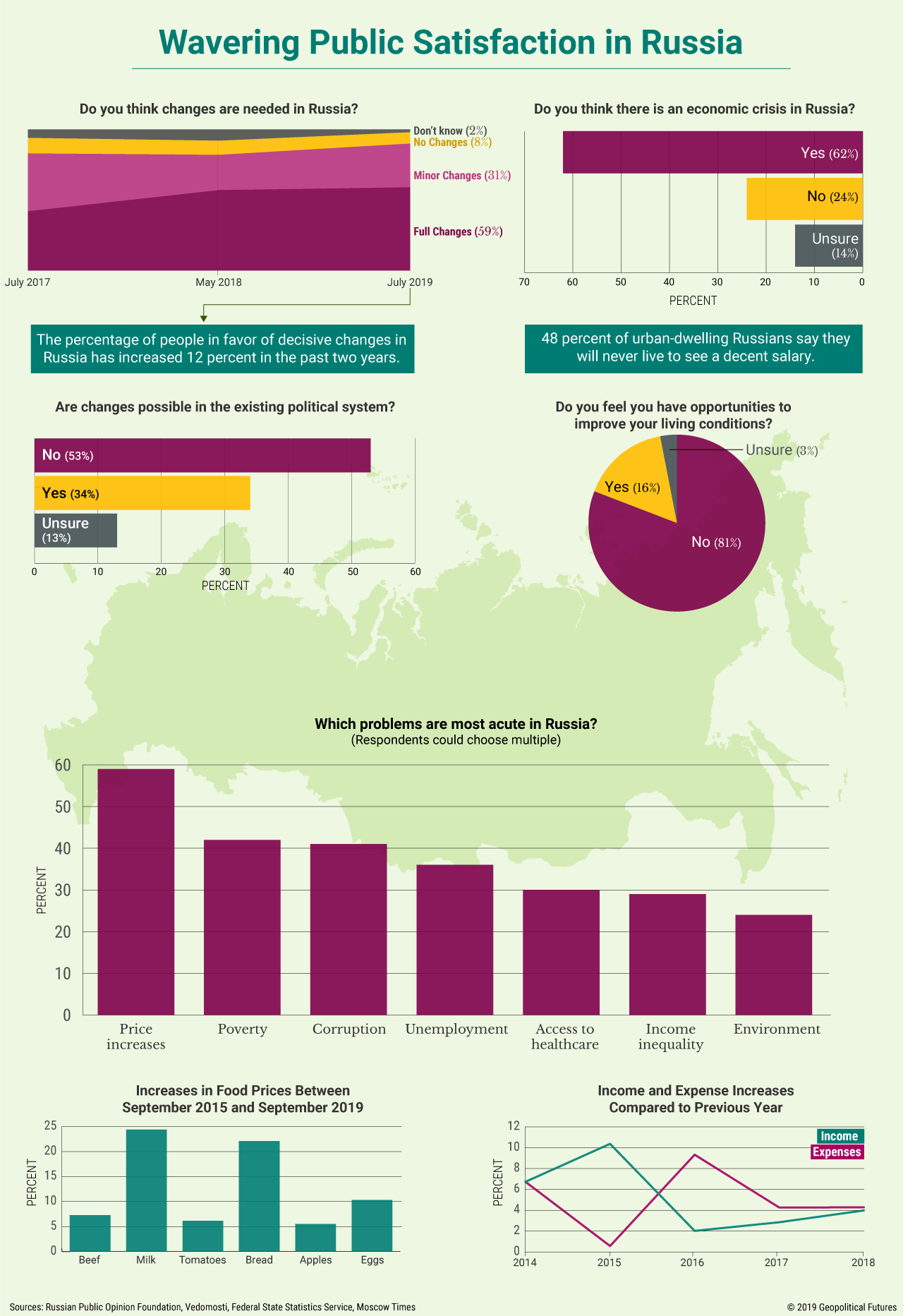By: Ekaterina Zolotova
On Wednesday, Russian President Vladimir Putin delivered his annual state of the nation address in front of the Russian parliament. In the speech, he proposed new measures to boost social assistance as well as some key constitutional amendments.
Just hours after the address, Prime Minister Dmitry Medvedev, a longtime Putin ally, announced that he and his Cabinet would resign, though the Cabinet will remain in place until a new government is formed.
The focus on social welfare and the government shakeup were hardly surprising, given the state of the country’s economy and the government’s slipping approval ratings. According to the Russian Public Opinion Research Center, the United Russia party’s popularity rating dropped to 31.4 percent in December, its lowest level in over 13 years. Medvedev’s own approval rating fell sharply over the past year, as did his public confidence rating.
More than half of the population believes that Medvedev did not do a good job as prime minister, according to a survey by state-sponsored polling agency FOM.
Add to this the increasing signs of the Russian economy’s dire condition – Russian economic growth remains low, nearly 20 million Russians live below the poverty line and the number of bankruptcies among Russians increased by 57 percent in 2019 compared to 2018 – and it’s clear that something had to be done to shake things up.

(click to enlarge)
Putin likely hopes that by promising to improve the economic standing of the general population, he can help boost the approval ratings of both the government and his own party. Putin himself has a high public approval rating at 64 percent, but remaining in power (either directly or indirectly) beyond 2024, when his current term expires, will require that he has the support of a strong party and a strong government.
Based on his address, Putin plans to improve the country’s economy by boosting social spending. To this end, he announced on Wednesday a series of costly reforms to existing projects. He proposed providing monthly payments for children aged three to seven and announced the extension of the maternity capital program – which provides state assistance to families with children – until at least 2026. These two measures are in part meant to increase the country’s birthrate. According to estimates from the Federal State Statistics Service, Russia’s population will decline in 2019 by the most in 11 years. Putin also proposed continuing allowances for teachers.
All of these initiatives will require heavy government investment for years to come. It’s estimated that all the measures Putin announced in his speech will cost 400 billion to 500 billion rubles ($6.5 billion to $8.1 billion) per year. Putin’s National Projects program, launched in 2019 and scheduled to end in 2024, is another ambitious initiative that the government hopes will boost economic growth.
It will cost the state a total of $400 billion. But the program has faced scrutiny, even from within the government itself, over where the funds will come from and how they should be spent. It was split over whether to invest money from the reserve fund in the National Projects program or in more profitable assets abroad to stimulate Russian exports. Putin will need support from within the government for his signature projects, especially given that it's possible a federal budget review will be carried out. He has therefore nominated the head of Russia’s Federal Tax Service, Mikhail Mishustin, to be the next prime minister.
2021 is an election year for the State Duma, and the government’s resignation was no doubt designed to help Putin secure the best possible result for his party. We should expect that the shakeup, and the increases in social spending, will help boost the popularity of Putin’s main backers ahead of legislative elections. But we shouldn’t expect radical changes; most of the government officials who resigned will likely continue to play a role in the government in one way or another. Medvedev, for example, was offered the post of deputy chairman of the Security Council.
Indeed, Putin’s own hold on power beyond 2024 could be extended through his proposed constitutional amendments. Under the constitution, he won’t be allowed to run for reelection after his current term expires. In his speech, he didn’t suggest extending term limits but instead proposed constitutional changes that will transfer certain powers, including the power to nominate the prime minister and Cabinet, from the president to the parliament.
This is likely part of Putin’s longer-term strategy to maintain a strong hold over the government, and we should expect that over the next four years, the powers of the government will be expanded. As things stand now,
Putin will be forced to leave office in 2024, but he’s unlikely to leave politics. He could either find a candidate for president who could carry out his agenda or keep ruling the country himself in another capacity.
0 comments:
Publicar un comentario